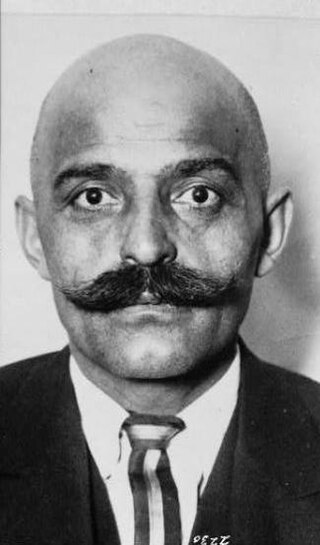
George Ivanovich Gurdjieff was a philosopher, mystic, spiritual teacher, composer, and dance teacher. Gurdjieff taught that people are not conscious of themselves and thus live their lives in a state of hypnotic "waking sleep", but that it is possible to awaken to a higher state of consciousness and serve our purpose as human beings. The practice of his teaching has become known as "The Work" and is additional to the ways of the Fakirs (Sufis), Monks and Yogis, so that his student P. D. Ouspensky referred to it as the "Fourth Way".
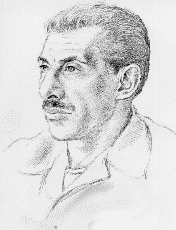
Idries Shah, also known as Idris Shah, Indries Shah, né Sayed Idries el-Hashimi and by the pen name Arkon Daraul, was an Afghan author, thinker and teacher in the Sufi tradition. Shah wrote over three dozen books on topics ranging from psychology and spirituality to travelogues and culture studies.
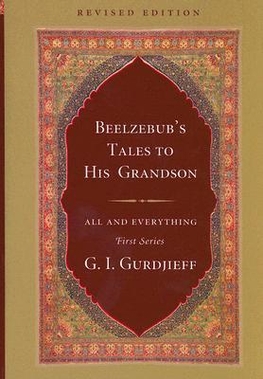
Beelzebub's Tales to His Grandson or An Objectively Impartial Criticism of the Life of Man is the first volume of the All and Everything trilogy written by the Greek-Armenian mystic G. I. Gurdjieff. The All and Everything trilogy also includes Meetings with Remarkable Men and Life Is Real Only Then, When 'I Am'.
Pyotr Demianovich Ouspenskii was a Russian philosopher and esotericist known for his expositions of the early work of the Greek-Armenian teacher of esoteric doctrine George Gurdjieff. He met Gurdjieff in Moscow in 1915, and was associated with the ideas and practices originating with Gurdjieff from then on. He taught ideas and methods based in the Gurdjieff system for 25 years in England and the United States, although he separated from Gurdjieff personally in 1924, for reasons that are explained in the last chapter of his book In Search of the Miraculous.
John Godolphin Bennett was a British academic and author. He is best known for his books on psychology and spirituality, particularly on the teachings of G. I. Gurdjieff. Bennett met Gurdjieff in Istanbul in October 1920 and later helped to co-ordinate the work of Gurdjieff in England after the guru had moved to Paris. He also was active in starting the British section of the Subud movement, and co-founded its British headquarters.

The Fourth Way is an approach to self-development developed by George Gurdjieff over years of travel in the East. Students often refer to the Fourth Way as "The Work", "Work on oneself", or "The System". The exact origins of some of Gurdjieff's teachings are unknown, but various sources have been suggested.

Henry Maurice Dunlop Nicoll was a Scottish neurologist, psychiatrist, author and noted Fourth Way esoteric teacher. He is best known for his Psychological Commentaries on the Teaching of Gurdjieff and Ouspensky, a five-volume collection of more than 500 talks given and distributed to his study groups in and around London from March 1941 to August 1953.
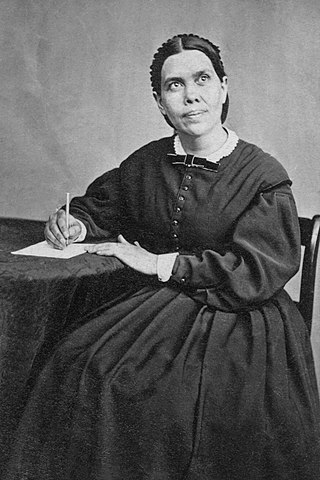
Ellen Gould White was an American author and co-founder of the Seventh-day Adventist Church. Along with other Adventist leaders such as Joseph Bates and her husband James White, she was influential within a small group of early Adventists who formed what became known as the Seventh-day Adventist Church. White is considered a leading figure in American vegetarian history. Smithsonian named her among the "100 Most Significant Americans of All Time".

Alfred Richard Orage was a British influential figure in socialist politics and modernist culture, now best known for editing the magazine The New Age before the First World War. While he was working as a schoolteacher in Leeds he pursued various interests, including Plato, the Independent Labour Party and theosophy. In 1900, he met Holbrook Jackson and three years later they co-founded the Leeds Arts Club, which became a centre of modernist culture in Britain. After 1924, Orage went to France to work with George Gurdjieff and was then sent to the United States by Gurdjieff to raise funds and lecture. He translated several of Gurdjieff's works.

Vril: The Power of the Coming Race, originally published as The Coming Race, is a novel by Edward Bulwer-Lytton, published anonymously in 1871.
Eternal return is a philosophical concept which states that time repeats itself in an infinite loop, and that exactly the same events will continue to occur in exactly the same way, over and over again, for eternity.
James Charles Napier Webb was a Scottish historian and biographer. He was born in Edinburgh, and was educated at Harrow and Trinity College, Cambridge. He is remembered primarily for his books The Harmonious Circle, The Occult Underground, and The Occult Establishment.
The Sarmoung Brotherhood was an alleged esoteric Sufi brotherhood based in Asia. The reputed existence of the brotherhood was brought to light in the writings of George Gurdjieff, a Greek-Armenian spiritual teacher. Some contemporary Sufi-related sources also claim to have made contact with the group although the earliest and primary source is Gurdjieff himself, leading most scholars to conclude the group was fictional.

Margaret Caroline Anderson was the American founder, editor and publisher of the art and literary magazine The Little Review, which published a collection of modern American, English and Irish writers between 1914 and 1929. The periodical is most noted for introducing many prominent American and British writers of the 20th century, such as Ezra Pound and T. S. Eliot, in the United States and publishing the first thirteen chapters of James Joyce's then-unpublished novel Ulysses.
James Harry Manson Moore was a Cornish author. He was a fellow of the Royal Asiatic Society and a leading authority on G. I. Gurdjieff.
Charles Stanley Nott (1887–1978) was an author, publisher, translator and a student of G. I. Gurdjieff. He first met Gurdjieff and A. R. Orage in New York in 1923. He spent time at the Institute for the Harmonious Development of Man and became a close student of Gurdjieff. He helped with the publication and distribution of Gurdjieff's first published book The Herald of Coming Good. He wrote two books on his life and experience with Gurdjieff, Orage, and P. D. Ouspensky.

Jane Heap was an American publisher and a significant figure in the development and promotion of literary modernism. Together with Margaret Anderson, her friend and business partner, she edited the celebrated literary magazine The Little Review, which published an extraordinary collection of modern American, English and Irish writers between 1914 and 1929. Heap herself has been called "one of the most neglected contributors to the transmission of modernism between America and Europe during the early twentieth century."
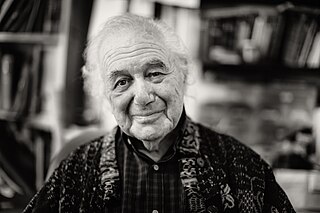
Jacob Needleman was an American philosopher, author, and religious scholar.
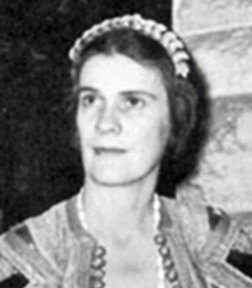
Olgivanna Lloyd Wright was the third and final wife of architect Frank Lloyd Wright. They first met in November 1924 and married in 1928. In 1932, the couple established Wright's architectural apprentice program and Taliesin Fellowship. In 1940, Olgivanna and Frank, along with their son-in-law William Wesley Peters, co-founded the Frank Lloyd Wright Foundation. Following her husband's death in 1959, Olgivanna assumed the role of President of the Frank Lloyd Wright Foundation, a position she held until a month prior to her death in 1985.

Romauld Landau (1899–1974) was born in Poland but became a British citizen when he served as a volunteer in the Royal Air Force during the Second World War. He was a sculptor, author, educator, Foreign Service officer and specialist on Arab and Islamic culture. His particular area of interest was Morocco. He was also an art critic and book reviewer for several newspapers and periodicals, including The Spectator. He is buried in the Christian cemetery of Marrakesh, Morocco.











